The three reasons Bernie Madoff was able to pull off the biggest Ponzi scheme in history – and how you can avoid falling victim to the next one
He is America’s most notorious financial fraudster, having defrauded tens of thousands of investors of approximately $68 billion.
But how did Bernie Madoff pull off the biggest pyramid scheme in history? It was a gigantic scam that ensnared celebrities and ordinary people alike.
Veteran financial investigative journalist Richard Behar wrestles with this question in his new book, “Madoff: The Final Word,” an extraordinary look into the thoughts and motives of the financial world’s most famous con man.
For 15 years, Behar exchanged emails with Madoff, spoke to him on the phone, and even visited him several times at the North Carolina prison where he was serving his 150-year sentence.
To help others avoid becoming a victim, the author explained to DailyMail.com the three main reasons why he believes Madoff got away with his scheme. He also outlined the warning signs to look out for to avoid becoming a victim of fraud.
In his new book, ‘Madoff: The Final Word,’ Richard Behar asks how Bernie Madoff was able to pull off the largest pyramid scheme in history
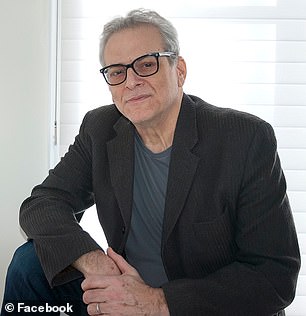
Veteran financial investigative journalist Richard Behar offers an extraordinary insight into the mind and motives of the financial world’s most famous con man in his debut book, ‘Madoff: The Final Word.’
1. Affinity fraud
According to Behar, pyramid schemes typically start as affinity fraud, where the scammer targets a specific group — whether it’s an ethnic or religious group, or people of a certain age.
Charles Ponzi, the creator of the scam that bears his name, targeted his Italian American compatriots in the 1920s, who trusted him primarily because they came from the same background.
A Ponzi, or pyramid scheme, works by paying off early investors with proceeds from later investors. It usually collapses when it can’t attract new investors. In Madoff’s case, this happened when the market took a steep fall in 2008.
“I’m Jewish, and I’ve talked to rabbis and others about this. I would say that Jews are particularly vulnerable to being scammed by other Jews because of centuries of persecution and poverty,” Behar said.
One of Madoff’s first “feeders” in the early 1960s, he explained, was a wealthy investor who was seen as a success story by Jewish people who had fled Europe before or during the Holocaust.
“He told them that if they needed extra money, he would show them how to do it. These people were tailors or bakers or whatever, and that extra money from Madoff was a lifesaver for them,” he said.
Madoff also cast his net on Jewish Hollywood stars and media personalities, including Steven Spielberg, Larry King and Mort Zuckerman, then attracted money from other celebrities and their wealth managers.
In order to grow — which Ponzis must do to survive — his scheme morphed from an affinity crime into a global fraud scheme dominated by massive feeder funds and banks, Behar said.

Madoff also cast his net on Jewish Hollywood celebrities and media personalities, including Steven Spielberg (pictured), Larry King and Mort Zuckerman, Behar said.
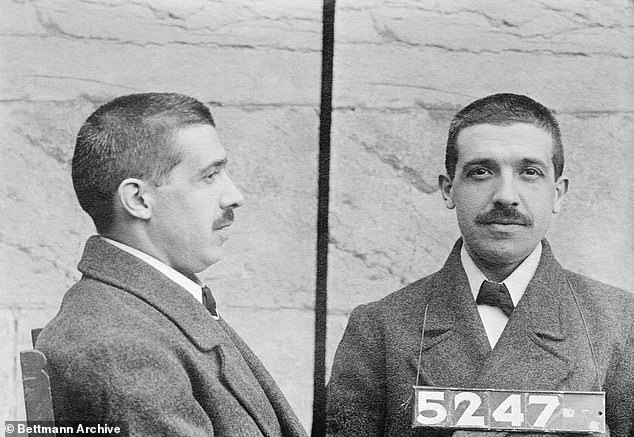
Charles Ponzi, the creator of the scam that bears his name, targeted his Italian-American compatriots in the 1920s
2. ‘No soup for you!’
Like Seinfeld’s famous “Soup Nazi” character, Madoff created a universe in which investors were afraid to ask too many questions, Behar said.
The character in the long-running sitcom refuses to serve his famously delicious soup to disobedient customers, saying, “No soup for you!”
Madoff’s clients feared that he would cut them off the money train and close their accounts if they continued to pester him for more information.
“Like nightclubbers behind velvet ropes hoping to be chosen, Bernie was selective, sometimes even telling people who wanted to invest that his fund was closed for the time being and that he was not taking new money,” Behar added.
“And that just added to the appeal and the desire to get into this special club. Bernie talked to me in prison about how people were begging to get in.”
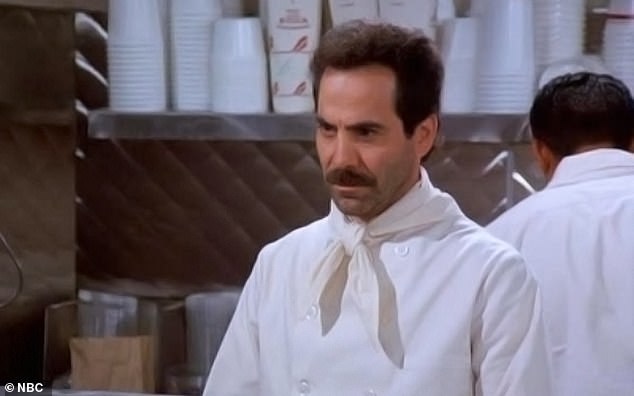
Like Seinfeld’s famous “Soup Nazi” character (pictured), Madoff created a universe where investors were afraid to ask too many questions, Behar said.
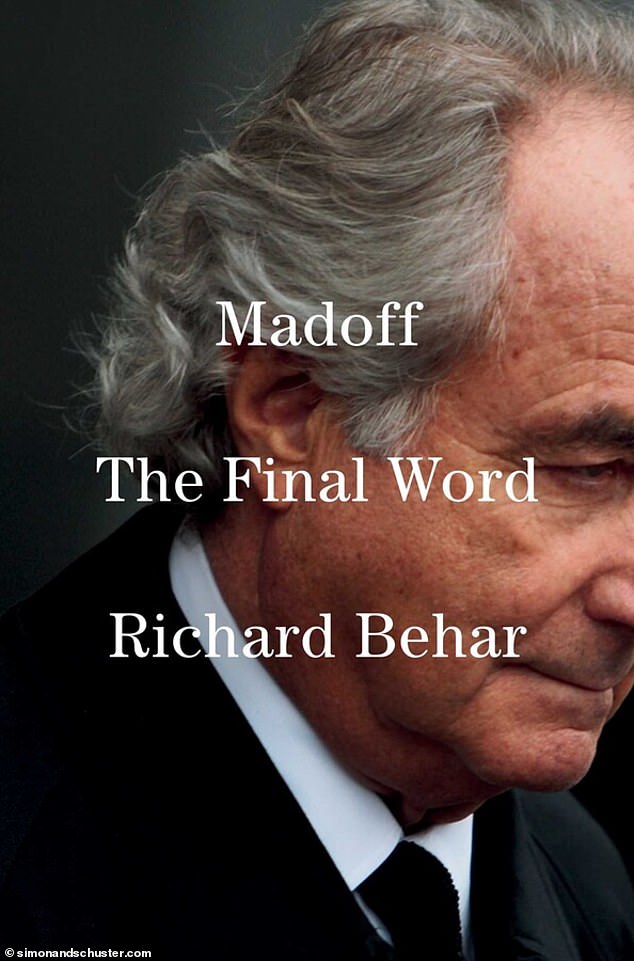
For fifteen years, Behar exchanged emails with Madoff, spoke to him on the phone, and even made several visits to the North Carolina prison where he was serving his 150-year sentence for “The Final Word.”
3. Due diligence? No!
According to Behar, investors entered the project with little more than blind faith.
“Bernie was counting on that. People spend more time researching a new TV purchase than they do a can’t-lose Ponzi scheme like Madoff’s.”
He added: “And how many of us with a brokerage account or an IRA account have, honestly, taken the time to type the name of our broker or investment manager into the search bar of Wall Street’s database of ‘disciplinary action’ with the Financial Industry Regulatory Authority for 30 seconds?”
Behar said that when he began reporting for the book, he did an investigation and discovered that his 83-year-old Merrill Lynch broker, who is now deceased, had committed a crime in 1968.
Normally, Madoff excluded professional investors.
“They could have analyzed the statements and concluded that consistently high returns were impossible,” Behar said.
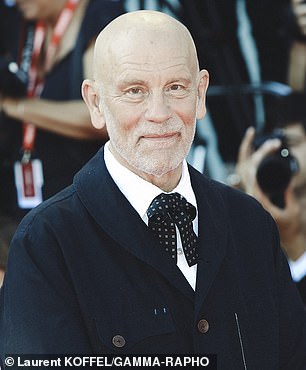
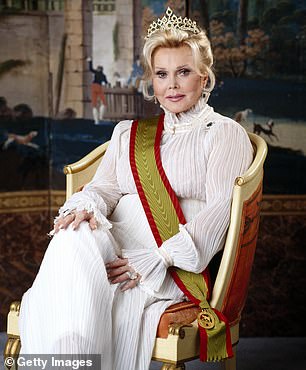
Other celebrities, including actor John Malkovich and actress Zsa Zsa Gabor, lost millions investing with Madoff
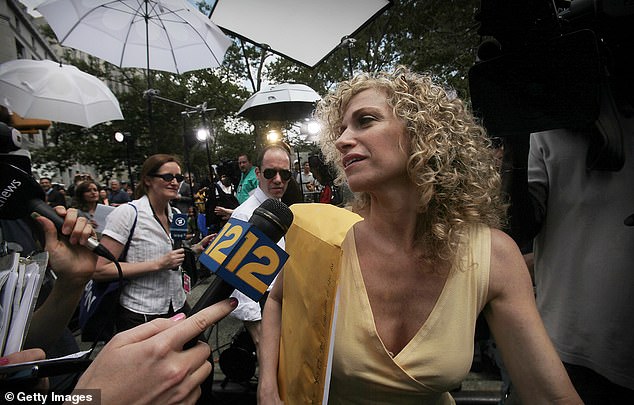
Among those who invested with Madoff was New Yorker Sharon Lissauer, who lost everything when she handed over her inheritance from her mother. She is pictured leaving court on the day Madoff was jailed.
What is Behar’s advice to prevent fraud?
Madoff did not allow his clients to view their bank statements online, nor did he allow them to send emails to his employees.
‘Simply put, if you can’t view online statements, run for the hills! If you can’t email your agent, walk!
If the printed statements sent to you look like something that came out of a computer from the 1960s and 1970s (and they did), run!‘
And note the disclaimer.
“Believe it or not, I also said there was always a chance that I or others would commit fraud,” Madoff told Behar.
